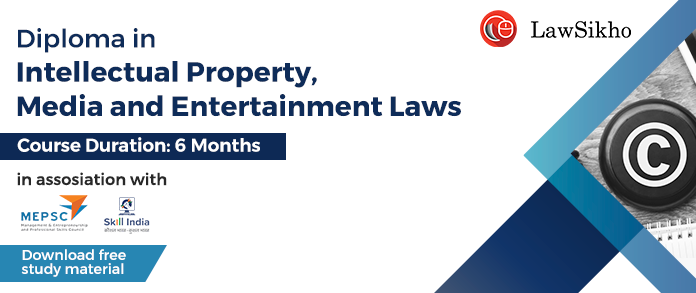This article is written by Vandana Kumari, a student at Lawsikho. This article tries to shed some light on the laws governing sales under Chapter III of the Transfer of Property Act, 1882.
This article has been published by Sneha Mahawar.
Table of Contents
Introduction
In common parlance, a “sale” is a transaction wherein one person purchases some article from another in exchange for some consideration. However, when it comes to the law, a sale has several facets. The law categorises the subject matter of the sale into moveable and immoveable properties. At present, when it comes to property laws, there are no laws that exhaustively deal with them. For instance, the Sale of Goods Act, 1930, generally covers the sale of moveable properties. However, it excludes “money” and ”actionable claims” from its scope, even though they are considered moveable properties, according to Section 2(7) of the Act. Similarly, in the Transfer of Property Act, 1882 (here-in-after also referred to as “TPA”), the general rules of transfer provided in Chapter II and the modes of transfer under Chapters VI (exchanges), VII (gifts), and VIII (actionable claims) of the Act apply to both moveable and immoveable properties. However, when it comes to the specific modes of transfer, such as sale, mortgage, and lease, TPA only deals with immoveable properties.
Before moving further, we must understand the kinds of transfers this Act deals with. Though it encompasses many types of transfers, such as mortgage, lease, exchange, gift, and actionable claims, it must be noted that the scope of this Act is not exhaustive. It applies only to certain kinds of transfers.
- As provided under Section 2(d) of the TPA, it governs only those transfers which take place by the ‘act of parties’ and not by the ‘operation of law’ except in cases of Section 57 (discharge of encumbrances on sale) or Chapter IV (mortgage of immoveable property and charges). This simply means that TPA is not applicable for transfers due to insolvency, forfeiture, succession or execution.
- Section 5 of the TPA further explains that the transfer must be an act of ‘living parties’. Thus, it can be said that this Act only deals with transfers inter vivos (between the living).
Now that we have a clear understanding of the applicability of this Act, we can deduce that a sale under TPA is also a transaction between living parties dealing with immoveable property. The provisions of sale under TPA range from Sections 54 – 57 which deal with the definition, modes of transfer, registration, rights and liabilities of buyer and seller, and other aspects relating to marshalling and encumbrances.
Let’s take a look at the said provisions.
Definition of sale
Section 54 of the Transfer of Property Act, 1882, defines “sale” as the transfer of ownership in exchange for a price. The term “price” is to be interpreted as a price in terms of money and not otherwise. If the transfer involves any other kind of consideration, it is not a sale. Further, the Section also provides that the price need not be paid simultaneously with the transfer. The price may either be paid in full or partially, or partly paid and partly promised. The transfer will be deemed complete in all three cases. Thus, what is relevant is not the immediate payment but the reference as to when and how the payment is to be made.
The subject matter of the sale under the said Act is immoveable properties. Section 54 includes immoveable properties, both tangible and intangible. The tangible properties are those that are visible, such as lands, houses, etc. The intangible properties are those that do not have a physical existence, such as copyrights, trade secrets, the right to ferries or fisheries, or a right to mortgage debt, etc. This Section provides two specific methods for how a sale can be made and executed. According to this Section, a sale can be completed by a “registered instrument” in cases of
- Transfer of tangible immoveable property of the value of Rs. 100 or upwards;
- Transfer due to reversion; or,
- Transfer of intangible immoveable property.
In other cases, such as the transfer of tangible immoveable property of a value less than Rs 100, a sale can be made either by a “registered instrument” or by “delivery of property”. According to this Section, when the seller hands over the possession to the buyer or the person he specifies, delivery of the property is deemed to have occurred.
Contract for sale
Section 54 further incorporates the concept of “contract for sale.” It is an agreement between the parties that a sale will be effectuated in the future by executing a sale deed on mutually settled terms.
In English law, such a contract transfers an equitable estate in favour of the purchaser. However, under Indian law, a contract for sale does not transfer any title, nor does it create a charge or interest on the property. It is merely a promise to create a right to obtain another document, i.e., a deed of sale. Therefore, it does not require registration, as held in the case of Dave Ramshankar Jivatram v. Bai Kailasgauri (1972). The Gujarat High Court in this case also held that it is not enforceable in any court of law. For instance, A agreed to sell the property to B, but they did not execute any documents. Later on, A sold the property to C. In this case, B cannot approach the court to enforce his right to specific performance.
However, as the courts in India developed from the common law approach to equity courts in contractual matters, this difference has become insignificant to a great extent. Various judgements have laid down that if an overt act, such as payment of advance money, delivery of possession, or any similar act, has been done in pursuance of the agreement, the transferee becomes entitled to obtain relief from the courts. For instance, in Kodapalli Satyanarayan v. Kondapalli Mavullu (1998), the Andhra High Court observed that if a property has been transferred to someone other than the prior agreement holder and the subsequent transferee has notice of the earlier transaction, then he will be deemed to hold that property in trust for the former party.
Similarly, in Ramesh Chand Ardawatiya v. Anil Panjwani (2003), the defendant agreed to sell his piece of land to the plaintiff. He also puts the plaintiff in possession of the property for an advance payment. The plaintiff constructed a boundary wall on that property. A trespasser tries to encroach upon the land at the behest of the defendant. The plaintiff sought a declaration from the Court that he was rightfully in peaceful possession of the property and sought a permanent injunction to restrain the trespassers from interfering with his possession. The Court granted the relief and held that the plaintiff is entitled to protect his possession and that A should refrain from taking the law into his hands and instead assert his title through due process of law.
The Court also observed, “if a person who entered into possession under a contract for sale and is in peaceful and settled possession of the property with the consent of the owner, he is entitled to protect his possession against the whole world, except the true owner.” However, if he is in possession of the property in part performance of the contract for sale and the requirements of Section 53A are satisfied, he may protect his possession even against the true owner.”
Parties to sale
In every sale, there are always two parties. The person who transfers the property is known as the “seller,” and the person who receives such property in exchange for monetary consideration paid by him is known as the “buyer.” They both must be competent in the eyes of the law to effectuate a valid sale deed.
Competency of a seller
Section 7 of the Act deals with the persons who are competent to transfer. According to this Section, a transfer will be valid only if the transferor (the person who is transferring the property) fulfils the following conditions:
- He must be competent to enter into a contract.
This part of the Section is pari materia (on the same subject matter) with Section 11 of the Indian Contract Act, 1872, which deals with competency to enter into a contract. It states that to make a valid contract, a person must have reached the age of majority, must be of sound mind and must not be disqualified by any law from contracting
- He must be entitled to the transferable property at the time of the sale i.e., he holds the legal title to dispose of the property; or,
- He must be legally authorised to dispose of such property.
For instance, a Karta is empowered to sell the property of a Hindu Undivided Family (HUF) only in cases of legal necessity, pious purpose, or in favour of the female members of the family. Likewise, a guardian of a minor is authorised to sell the property of the minor only with the permission of the court and not otherwise. Similar observations have been made by the Supreme Court in the case of Lakhwinder Singh v. Miss Paramjit Kaur (2003), wherein it observed that if a sale deed has been executed by a person having a general power of attorney over the property without the permission of the Court, such a sale deed will not be valid in the eyes of the law. The case of Smt M Bhagyamma v. Bangalore Development Authority (2012) further extended the scope and held that if a power of attorney authorises the agent to transfer the property, then he will be deemed to be a competent seller.
Competency of a buyer
Generally, every person is competent to be a buyer, provided they are not disqualified from purchasing any property under any law that is in force in India. Besides that fact, even a minor can be a buyer, provided that the transfer is made by his guardian. It is based on the principle that a minor is entitled to retain assets and be exempt from liabilities. It was observed by the Allahabad High Court, in the case of Ulfat Rai v. Gauri Shankar (1911), that a sale to a minor by the guardian, which has been duly executed in exchange for a duly paid consideration, is valid.
In a nutshell, the essentials of a sale can be summarised in the following points:
- The sale must be between living persons. “Living persons” includes a company or associations or body of individuals, whether incorporated or not;
- The subject matter of sale must be an immoveable property;
- There should be at least two parties to a sale i.e., a seller and a buyer;
- They must be competent to enter into a contract;
- They must hold a legal title to the transferable property at the time of the sale or must be legally authorised to dispose of the property;
- There should be an absolute transfer of ownership in favour of the buyer;
- The consideration must be in the form of money/price. It can be either paid at the time of the transfer or as per the time or conditions mutually settled by the parties;
- The sale deed must be registered if it is a tangible immoveable property valuing one hundred rupees or more;
- A sale deed must be registered if the sale involves a transfer of intangible immoveable property or a transfer due to reversion;
- In cases of a tangible immoveable property valuing less than Rs 100, the sale can be made either by a registered instrument or delivery of property.
Rights and liabilities of buyer and seller
Every property transaction create certain rights and liabilities for the contracting parties. In the case of a sale, the contracting parties, a buyer and a seller, are also vested with some rights and liabilities. Generally, the parties themselves expressly agree as to which rights and liabilities they will subject themselves to. These are mostly mentioned in a sale deed. However, the Act does not leave it entirely up to the parties. Section 55 lays down a detailed description of every right and liability in the absence of a contract to the contrary. For convenience, the rights and liabilities of the buyer and seller can be categorised into the rights and liabilities before and after the completion of the sale.
Liabilities and rights of the seller and the buyer before completion of sale
Liabilities of a seller
- Disclosure of material defects (Section 55(1)(a)): A seller is bound to disclose any latent material defect in the property or his title in his knowledge. A material defect is of such a nature that if it was known to the buyer, his intention to enter into a sale might deviate [Flight v Booth (1834)]. It is a latent defect because it cannot be discovered by the buyer even after ordinary care and inquiry.
- Production of title deeds for inspection (Section 55(1)(b)): A seller is bound to produce all the title documents relating to the property at the request of the buyer for his inspection.
- Answer relevant questions regarding his title or the property (Section 55(1)(c)): The seller must answer every relevant question put to him by the buyer relating to his title or the property. The answer must be to the best of his information.
- Execute a proper conveyance of the property (Section 55(1)(d)): Conveyance means an act of transferring a property. It can be done by signing or affixing a thumb impression on the sale deed by the seller. A seller is bound to execute a proper conveyance only on the payment of the consideration by the buyer. This clause imposes reciprocal duties on both the buyer and the seller. The clause also provides that the execution must be at a proper time and place.
- Take reasonable care of the property and title deed (Section 55(1)(e)): The seller is bound to take care of the property and title deed in the same manner as an owner of ordinary prudence would do. This duty is to be exercised till the delivery of the property to the buyer.
- Pay all the charges (Section 55(1)(g)): A seller is bound to pay all the rent and public charges of the property, with interest if any, due till the completion of the sale except if the buyer purchased the property with all the encumbrances.
Rights of a seller
- Right to take rents and profits (Section 55(4)(a)): A seller is entitled to collect rents and profits from the property until the ownership is transferred to the buyer.
Liabilities of a buyer
- Disclosure of all the facts known to the buyer that materially increase the value of the property (Section 55(5)(a)): The buyer is under obligation to confide to the seller any fact to which he has reason to believe is not known to the seller relating to the increase in the property’s value. If he fails to do so, it will be considered fraud, and the seller can avoid the sale if it is proven.
In the English case of Summers v. Griffiths (1866), an old lady contracted to sell a property at a much lower price, believing that her rights in the property were not absolute. The buyer was aware that the lady’s interest in the property was perfect and absolute, but he did not disclose it to the lady. He was held liable for fraud, and the sale was set aside.
- Pay the price in accordance with the contract (Section 55(5)(b)): The buyer must pay the purchase money at the time of completion of the sale to the seller or any person as directed by the seller. If there are any encumbrances existing on the property at the time of sale, the buyer is free to deduce such amount from the consideration he has to pay. It is in correspondence with the duty of the seller to execute a proper conveyance.
Right of a buyer
- Refund of money paid on proper denial to accept delivery (Section 55(6)(b)): The buyer is entitled to receive the amount of any purchase money with interest properly paid by him to the seller in anticipation of delivery. The buyer is also entitled to get a refund of any earnest money paid by him or the cost awarded to him in a suit to compel the specific performance of a contract or to obtain a decree for its rescission.
Liabilities and rights of the seller and the buyer after completion of the sale
Liabilities of a seller
- To give possession (Section 55(1)(f)): The seller is bound to put the buyer or person as directed by the buyer in possession of the property on being so required. This clause uses the words- “…such possession of the property as its nature admits.” It refers to the nature of possession. For instance, in the case of tangible immoveable property, physical control is to be given over property. In the case of intangible immoveable property, the possession is symbolic.
- Implied liability (Section 55(2)) – The seller must undertake impliedly that he holds the perfect title to the property and is transferring the same free from any encumbrance. The rights or interest created by the sale shall vest with the transferee and may be enforced by every person in whom that right or interest is for the whole or any part thereof from time to time is vested.
- To deliver title deeds on receipt of price (Section 55(3)): The seller is bound to hand over all the documents relating to the title of the property to the buyer on payment of the whole of the purchase money. Proviso (a) to Section 55(3) states that if a seller retains any part of the property comprised in the documents, he is entitled to keep the documents as well. Proviso (b) also imposes the same duty on the buyer of the greatest value when the property is sold to different buyers. However, in both cases, such a person must furnish such documents and their true copies to other buyers at their request. They are also under an obligation to keep the documents safe unless prevented from doing so by fire or other inevitable accidents.
Right of a seller
- Charges upon the property for the unpaid price (Section 55(4)(b)): Where the ownership has been transferred to the buyer before payment of the whole consideration amount, the seller becomes entitled to a charge upon the property which is in the hands of the buyer or any transferee without consideration or any transferee with notice of non-payment. The charge will be for the amount of the purchase money or the part remaining unpaid or for the interest on such amount or part from the date on which possession has been delivered.
Liabilities of a buyer
- To bear loss to the property (Section 55(5)(c)): After the completion of the sale, the ownership is completely transferred to the buyer. From that date, if any damage, destruction or decrease in value occurs in the property, the buyer will be bound to bear such losses.
- To pay the outgoings. (Section 55(5)(d)): The buyer is liable to pay all the public charges or rent accruing after the completion of the sale or as agreed by the terms settled in the sale deed.
Rights of a buyer
- Benefit of the increment. (Section 55(6)(a)): Any benefit arising from improvement or increase in value of the property or the rents and profits after completion of the sale shall vest with the buyer.
Marshalling by subsequent purchaser
Section 56 of the Act deals with marshalling. The situation of marshalling arises when a debt has to be satisfied and two or more properties are available. The rule of marshalling suggests that where the owner of two or more properties mortgages them to one person and sells one or more of the properties to another person, the buyer of the property is entitled to make an arrangement with the mortgagee to satisfy his debt out of those properties that are not sold to him.
This Section is based on the principles of equity. It insists that when a buyer purchases some property, its absolute interest must be protected. In Brahm Parkash v. Manbir Singh (1963), the Supreme Court held that under Section 56, a subsequent purchaser has a right to claim marshalling. This Section also provides that such marshalling shall not affect the rights of the mortgagee, persons claiming under him, or any other person who has acquired any interest in the property for consideration.
Encumbrances and court sale
Generally, a sale needs to be free of any kind of lien, charge, or obligation. However, there may be instances in which a property with encumbrances has been sold. Section 57 of the Act caters to such a situation. This Section covers both the sales made by the court or in the execution of a decree and those made outside the court. It offers a legal procedure to obtain a declaration from the court that the property is free from any kind of encumbrance.
Section 57(a) provides that any party to the sale may apply to the Court to obtain this relief. If the court thinks fit, it may direct or allow the applicant to deposit in court, for the encumbrancer (who has the charge over the property), a capitalised value of the periodic charge or a capital sum charged on the property, together with incidental charges, sufficient to satisfy the charges or any interest thereon. The court shall also order the deposit of any additional amount that it considers sufficient for meeting any further costs, expenses, interest, or any other contingency, but it shall not exceed one-tenth of the original amount unless otherwise directed by the court.
Section 57(b) states that the court may serve notice on the encumbrancer after the payment has been made. The court can also dispense with such notice after recording its reasons. In addition to that, the court may also declare the property to be free from any encumbrances and proceed to issue an order of conveyance, or vesting order, proper for giving effect to the sale. Further, Section 57(c) deals with the order of transfer and distribution of the deposit to the encumbrancer.
It is also provided that an appeal is allowed from any declaration, order, or direction made in accordance with this Section, just as if it were a decree. (Section 57(d)).
Under this Section, the jurisdiction is vested in either of the following Courts, as provided in Section 57(e):
- A High Court in the exercise of its ordinary or extraordinary original civil jurisdiction;
- A District Court within the local limits of whose jurisdiction the property or any part thereof is situated; or,
- Any other Court notified by the State Government in the official gazette from time to time.
Recently, the Kerala High Court, in M.P. Varghese v. Annamma Yacob (2020), elaborated in great depth on Section 57. The Court discussed the aims and objectives of this Section as well as thoroughly explained its procedural mechanism. In this case, the property was divided among the siblings through a partition deed with a clause stating that the brothers must pay Rs. 500 each to their sister within a year. If they fail to do so, the sister will acquire a charge over the property. The brother, who is the appellant in this case, entered into a contract of sale with someone. He contends that the respondent, in this case, the sister, is refusing to accept the payment because of which the property is burdened with the charge, and consequently he is not able to execute the sale deed. The respondent failed to show any reasonable cause for refusal of payment apart from personal reasons. The Court noted that the amount of Rs. 500 alone stands charged on the property as a capital sum, and the appellant has no further obligation whatsoever. Thus, it was held that the appellant is entitled to a declaration under Section 57.
Rescission of a contract of sale
To rescind a contract means to do away with it. Rescission is an equitable remedy that allows the contracting parties to cancel the contract and return to the position they would have had if the contract had not been made. A sale transaction is similar to a contract. It can also be rescinded by the parties in the same manner as other contracts.
Rescission of a contract is governed under Sections 27-30 of the Specific Relief Act, 1963. Section 27(1) of this Act provides the ground of rescission, which can be claimed by any person interested in the contract. These grounds are mentioned as follows:
- Where the contract is voidable or terminable by the plaintiff;
The contract becomes voidable when the plaintiff’s consent to enter into a contract has been obtained through coercion, fraud, misrepresentation, or undue influence. This has been provided under Section 19 and Section 19A of the Indian Contract Act, 1872. Section 55 of the TPA also contemplates a similar situation. It states that when the buyer or seller, as the case may be, omits to disclose any material fact to the detriment of the other, such omission will be considered fraudulent. Thus, rescission in such cases can also be claimed by the aggrieved party.
- Where the contract is unlawful for causes not apparent but the defendant is to be blamed more
The Specific Relief Act, 1963, also contemplates one other ground for rescission under Section 28(1) of the Act. This rescission is a result of non-compliance with the court’s order to pay the purchase amount within a stipulated time in a suit of specific performance. It states that when the order of specific performance has been decreed against the seller and the purchaser is directed to pay the amount within a time fixed by the court and he fails to do so, the seller may apply in the same suit to have the contract rescinded.
Apart from the aforementioned grounds, the Indian Contract Act, 1872, also provided some more grounds on which the rescission of a contract can be claimed. These provisions are mentioned in the following points:
- Under Section 39, if a party to a contract refuses to perform the promise or disables himself from performing the promise in its entirety, the other party is at liberty to put an end to such a contract.
- Section 53 states that if a party to a contract prevents another party from performing his part of the promise, the contract becomes voidable at the option of the party so prevented.
- Section 55 mentions that time is the essence of the contract and if the party fails to perform his promise in a specified time, the aggrieved party can claim to put an end to such contract.
Effects of rescission
The rescission renders the contract null and void and aims to put the parties back to their status quo ante, i.e., the previously existing state of affairs. If the parties cannot be restored to the same position, they will not be able to go for rescission. Thus, restoration of benefit is one of the essential elements for the rescission of a contract. The provisions for the restoration of benefits and compensations are mentioned in the points listed below:
- Section 64 of the Indian Contract Act, 1872, provides that if the party who is claiming rescission had received any benefit from the other party then he must restore such benefit to the person from whom he has received it.
- Section 75 of the Indian Contract Act, 1872, deals with the compensation for the loss sustained by the aggrieved party because of the non-performance of the contract by the party in default.
- Section 28(2) of the Specific Relief Act, 1963, states that if the vendee was in possession of the property and the contract was rescinded because of the non-payment of the purchase amount, he must make payment of all the rent and profits to the vendor that has accrued from the date of his receiving possession until the date of restoration. Similarly, the vendor, if received any earnest money from the vendee, must refund the same.
Important case laws
Essential elements of sale
The courts have interpreted Section 54 now and again. A thorough interpretation of this Section has helped the Courts decipher the essential ingredients of sale. Following is a list of cases that helps in understanding the nature of some of the important ingredients:
- In Vidhyadhar v. Manikrao (1999), the Supreme Court held that to constitute a ‘sale’ the parties must intend to transfer the ownership of the property. The intention is to be gathered from the recitals in the sale deed, the conduct of the parties, and the evidence on record.
- In the case of Commissioner of Income Tax v. M/s. Motor and General Stores (1967), the Apex Court opined that the price, in the ordinary sense connotes monetary consideration for the sale of the property. It also observed that if some other valuable consideration is kept, the transaction is not a sale but can be an exchange or barter.
- The Allahabad High Court in Hakim Singh v. Ram Sanehi (2001), observed that inadequacy of consideration is not a relevant factor in a sale. Even when the price or the consideration is found by the Court to be less than the market value of the property, the sale is valid.
Effect of an unregistered sale deed
- The Gauhati High Court in Saniram Kachari and Anr. v. Gauri Ram Koch and Ors. (1951) held that though an unregistered sale deed is valid under the Registration Act, it cannot confer a title on the purchaser under Section 54. However, when an unregistered sale deed is followed by delivery of possession in compliance with Section 54, then such a sale will be considered effective. It also observed that the registered sale deed might be regarded as a surplusage when the delivery of possession is sufficient to confer title under Section 54.
- In a landmark case of Suraj Lamp and Industries Pvt. Ltd. v. State of Haryana and Anr. (2011), the Supreme Court affirmed that a sale of the immovable property could be made only by a registered instrument and an agreement of sale does not create any interest or charge on its subject matter.
- The Karnataka High Court, in the recent case of Gangappa v. Lingareddy (2022), resolved the issue of whether an unregistered sale deed can discard the title which has been acquired by delivery of possession of a tangible immoveable property whose value was less than rupees one- hundred.
In this case, the appellant contended that the property belonged to her mother, who inherited it from her father, and the respondent was trying to interfere with the property by creating a bogus document of title in his favour. However, the respondent claimed that he received the property through the will of his father, who acquired the property through a sale deed from the appellant’s maternal grandfather. Since the value of the property was less than one hundred rupees, they did not register the sale deed.
The court held that Section 54 of the Transfer of Property Act, 1882, allows two alternative modes for the execution of the sale in the case of tangible immoveable property valued at less than Rs. 100, namely, by way of either a registered instrument or simple delivery of the property. Since the latter criteria have been fulfilled by the respondent, the appellant’s claim stands to be dismissed.
Conclusion
In light of the above discussion, we can conclude that the Transfer of Property Act, 1882 deals with the sale of immovable property by the act of living parties lucidly and comprehensively. It does provide not only the definition but also the modes of execution and registration. It also provides a framework of rights and liabilities to which the seller and buyer will be subjected, but at the same time, it is also flexible enough to allow the parties to settle on other terms at their discretion. In my view, there is one matter that needs some clarification. It can be seen that the bare text of Section 54 lacks clarity regarding the ramifications of an unregistered sale deed. It plainly states that it does not create any title or interest in the property. Though various courts have ruled that the answer depends on the facts and circumstances of each case and the applicability of principles of equity in those cases, the language of the Section remains rigid. To eliminate any confusion, it should be more comprehensive and expansive.
Frequently Asked Questions (FAQs)
What is the difference between a sale and a contract for sale?
| Sale | Contract for sale |
| In a sale, ownership is transferred. | A contract for sale is merely an agreement to sell. There is no transfer of ownership. |
| The sale creates certain rights and interests for the parties over the property. Ownership refers to a bundle of rights such as possession, interest, title, authority to dispose of, etc. | It does not create any charge, interest, or lien over the property. |
| Sale creates a right in rem i.e. against the whole world. The buyer in whose favour the sale has been made can defend his title against anyone. | A contract for sale creates a right in personam, i.e., against a particular person. The buyer can only compel the seller to execute a sale deed if any ingredients of part performance have been fulfilled by the buyer. |
| Registration of the sale deed is required if the value of the property is Rs 100 or more. | As a contract of sale does not create any right or interest, no registration is required for such contracts. |
What is the difference between sale and exchange?
The only thing that differs between a sale and an exchange is the nature of the consideration involved. As per Section 54 of the TPA, the consideration for the sale of immovable property must be in terms of money (price). Whereas Section 118 of the TPA, which governs exchange, specifies that money can be a consideration for the exchange of money only and not any other property. Ownership of any immovable thing can be exchanged only by transferring ownership of another immovable thing and not otherwise.
References
- Textbook on The Transfer of Property Act, Dr. Avtar Singh, Universal Law Publishing Co. Pvt. Ltd., 2006
- The Transfer of Property Act, Dr. Hari Singh Gour, Delhi Law House, 2004
Students of Lawsikho courses regularly produce writing assignments and work on practical exercises as a part of their coursework and develop themselves in real-life practical skills.
LawSikho has created a telegram group for exchanging legal knowledge, referrals, and various opportunities. You can click on this link and join:
Follow us on Instagram and subscribe to our YouTube channel for more amazing legal content.
 Serato DJ Crack 2025Serato DJ PRO Crack
Serato DJ Crack 2025Serato DJ PRO Crack















 Allow notifications
Allow notifications


